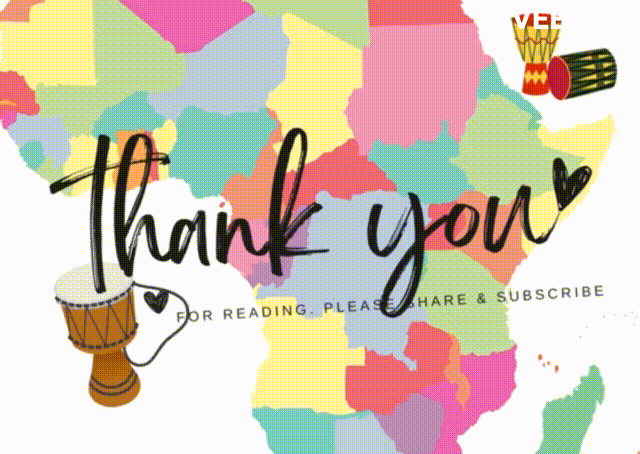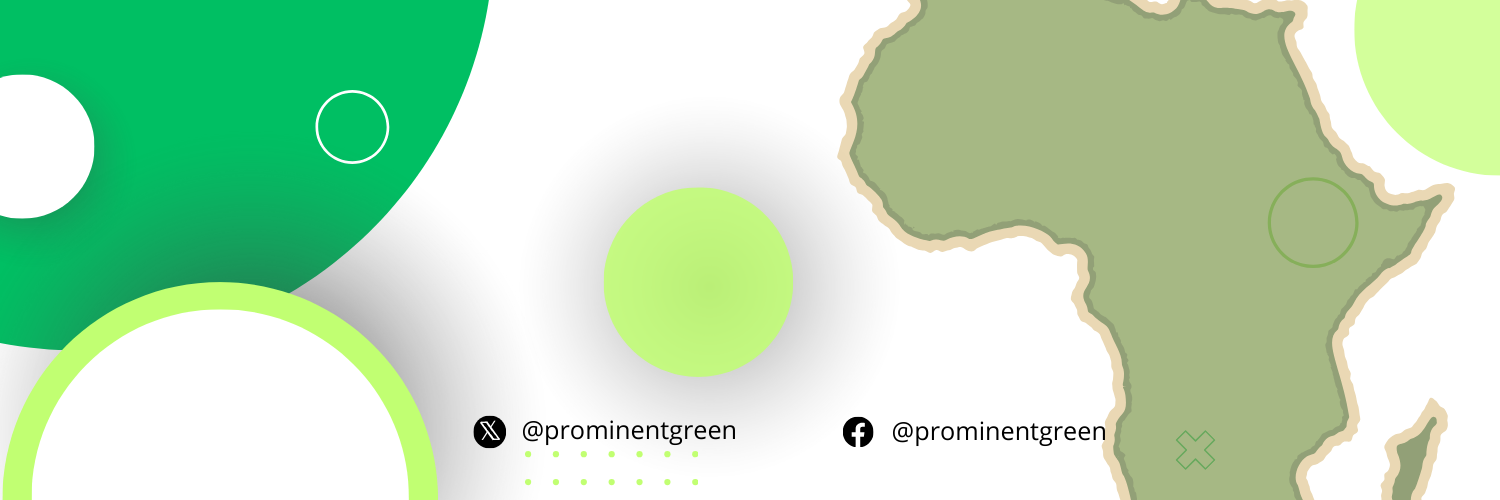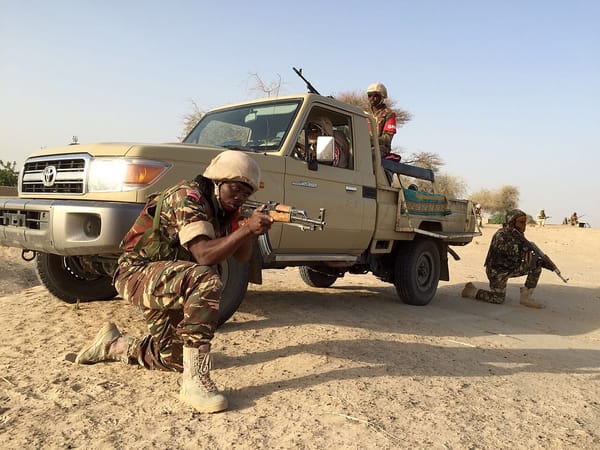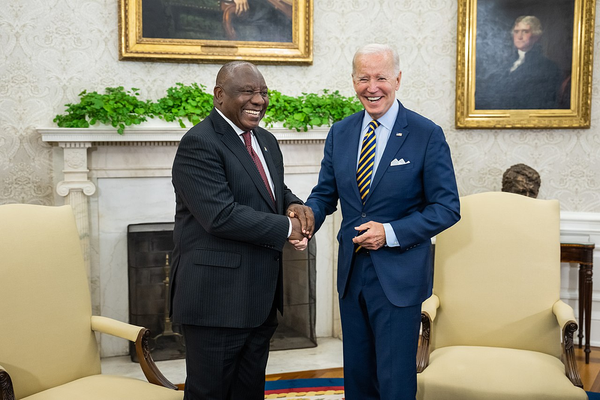The new name of colonization; Chinese money.
Xi Jinping has set his sight on reviving the age-old Silk Road. Dubbed ‘The Belt and Road Initiative’ the Chinese hope to create a harmonized economic corridor linking the East with the West through strategic locations around the world.

A new colonial movement.
It is 2018 and the underlying motivation for dominating other people and lands hasn’t changed much since the British marched ashore on nearly every country on Earth since the 1600s. Cheap raw materials, cheap human labour, overbearing diplomatic influence, and the occasional satisfaction of deep-seething perversions still form the pillars of colonial venture!
Colonial powers of the dark century of human enslavement and Africans, in particular, gave the world an ominous template for colonization. A dark gift, indeed. The first thing that comes to mind as you start reading this article is, “The transatlantic slave trade, along with human domination and colonialism, were evil economic ventures from a long-forgotten era where human life was as valuable as the amount the auctioneer’s gavel hammers as the sale price.” It shouldn’t feature in modern-day discussions nor should the transatlantic slave trade be cited as the reason for any backwardness in any corner of the earth, particularly in Africa. Time should’ve healed that wound. Sadly, time is no physician. Time will only keep account of actions, events, and activities; it wouldn’t prescribe a soothing balm. So I think the wounds have healed, albeit badly, and as the victims limp on across the sands of time, others seek to inflict fresh wounds using a revamped and revised version of the template provided by those who inflicted the first “near-death blow”.
First Contact.
My first experience of China and its people occurred while growing up in the late 80s and early 90s in the suburban countryside of Akure, Ondo State, Nigeria. It was with Kung Fu movies. The stories usually centred around a protagonist seeking revenge for a wrong done to him (her; with the advent of actresses like Cynthia Rothrock and Michelle Yeoh). The repetitive plots didn’t stop my brothers, friends, and me from watching tons of those movies. Chinese movies made us believe we could stop legions with a single kick! We ‘rocked’ the Chinese sneakers and yellow slim-fit joggers with black lines down the sides, topped with a white tank top gripping skinny abdominal muscles.
We’d scream and kick and mimic legends like Bruce Lee, Jackie Chan, Michelle Yeoh, and Chow Yun Fat! I am a grown man now and I still enjoy a good Chinese movie (I still mimic Kung Fu moves too), more so now that their movie plots have greatly improved. I guess I just watched for the kicks and punches alone when I was younger. Something else has greatly improved about the Chinese: international diplomacy and relations.
Xi Jinping, the charismatic Chinese leader who came to power on the 14th of March, 2013, has since shown that he wants to make China a world power. Not only in economics and military — they are a super world power already — but also in diplomacy and international relations, the kind that America and Britain enjoy. You see, the story of the American and British rise to superpower status cannot be told without referring to their colonial ventures! Either by ‘economic fate’ or strategic planning, the Chinese have set on a course to have their share of a global colonial venture.

The Old Silk Road.
Xi Jinping has set his sights on reviving the age-old Silk Road. Dubbed ‘The Belt and Road Initiative’ the Chinese hope to create a harmonized economic corridor linking the East with the West through strategic locations around the world. As the initiator, China stands to solidify its position as a “super world superpower”. Of course, the ambitious undertaking has to be financed and operated. Beijing isn’t letting up any ounce of control as they are legally binding each aspect of this mammoth undertaking to its institutions; financially, legally, and operationally. The countries where the ‘road’ will pass through have largely signed and in some cases acquiesced to bilateral agreements with China which will ensure perpetual Chinese lordships over these countries and the project as a whole (who runs the world? Xi!).
At this point, I’d like to define what the Belt and Road initiative is. According to the World Bank:
The Belt and Road Initiative (BRI) is an ambitious effort to improve regional cooperation and connectivity on a trans-continental scale. The initiative aims to strengthen infrastructure, trade, and investment links between China and some 65 other countries that account collectively for over 30 per cent of global GDP, 62 per cent of the population, and 75 per cent of known energy reserves. The BRI consists primarily of the Silk Road Economic Belt, linking China to Central and South Asia and onward to Europe, and the New Maritime Silk Road, linking China to the nations of South East Asia, the Gulf Countries, North Africa, and on to Europe. Six other economic corridors have been identified to link other countries to the Belt and the Road. The scope of the initiative is still taking shape — more recently the initiative has been interpreted to be open to all countries as well as international and regional organizations.
– The World Bank
Essentially China is seeking to create its version of the “New World Order”
How much for liberty?
Presently there are several countries entwined with China in what is being termed a “debt trap”. The idea is self-explanatory; a lender uses loans advanced to a borrower to keep the borrower on a leash, leveraging the loans. Google defines it as “a situation in which a debt is difficult or impossible to repay, typically because high-interest payments prevent repayment of the principal”.
Djibouti was the first country in Africa to be trapped, followed by Zambia. In the Euro-Asia axis, several countries have fallen victim to the Chinese debt trap. Sri Lanka owes one and a half billion dollars to the Chinese who helped finance the building of a seaport at Hambantota. Now they can’t pay back and the Chinese have taken over the seaport with the possibility of turning it into a military base.
This has sparked a whole lot of diplomatic underhand dealings with India, fearing that China is coming uncomfortably close to her sphere of influence. Montenegro with a population of about 630,000 people owes China 950 million dollars. that’s about $1,500 per person in Montenegro, all because of a super highway which pundits say will have no significant economic benefit. The tiny island of The Maldives which scientists say may be swallowed up by the ocean in about 60 years owes China $255 million putting debt to GDP ratio at about 100%!
A pattern, or nothing to see?
A scary pattern has emerged here. China is using its enormous financial capital to buy influence and domination in what I would describe as the diplomatic field despite stating emphatically that China doesn’t intend to impose its will on these countries. “No political strings attached,” as Xi put it. It has transformed itself from a player in that field to the owner of the pitch!
Of course, there are no indications whatsoever that China will slow down with its diplomatic shenanigans. Africa is home to 54 internationally recognized countries, and two more have their independence in dispute: Western Sahara and Somalia. It is the second-largest continent in the world and there is an enormous infrastructure and sociopolitical and economic gap to be filled. China’s influence is growing increasingly strong here, simply because it is paying the kind of attention Africa isn’t getting from the West. But this attention is more or less a Greek gift.
As I pointed out earlier; Djibouti and Zambia are already victims of the Chinese debt trap. Djibouti has already allowed China to build a military base that coincidentally isn’t far from the already existing American military base, and the takeover of its key seaport is imminent. Zambia is already in talks with China for the takeover of ZESCO, the state-owned power generating company that provides about 80% of power in that country and other key state-owned infrastructure. More than 70% of Kenya’s foreign debt is owned by China, which is tantamount to putting all eggs in a basket! West Africa isn’t left out as Nigeria and Ghana are toying with Chinese money among other African countries.

International condemnation.
In 2012 the Africa Union (AU) building in Addis Ababa, built and funded by China to the tune of $200 million opened to great fanfare. Five years later, it was discovered that Beijing had been spying on the AU. Le Monde, a well-known French newspaper, alleged that data from the building had been transferred nightly to Chinese servers in Beijing for 5 years. The AU buildings’ IT systems including servers were changed after the massive hack was discovered. Are we curiously skeptical of Chinese influence and diplomatic moves or are we just being dramatic?
Rex Tillerson, the former U.S. secretary of state said; that China encourages dependency, uses opaque contracts, predatory loan practices, and corrupt deals to mire Nations in debt and undercut their sovereignty, denying them long-term self-sustaining growth.
https://thediplomat.com/2018/03/tillerson-slams-chinese-financial-practices-in-africa/
Something is remarkably different from China’s colonial march; it is using influence rather than the machinery of war to conquer and colonize unlike the old colonial Britain, Spain, Italy, Germany, etc. That leaves a vital diplomatic option open for every other country along the path of China’s relentless march; choice! The news-making rounds about China and its Belt and Road Initiative (BRI) are filled with scary, end-of-time reports of countries falling into debt traps and the Chinese systematic takeover of countries. What seldom gets reported are the true success stories of the initiative, particularly the choices made by countries dealing with China.
The Maldives, Sri Lanka, and Zambia were all present when the agreements were made with China. They could have negotiated a better deal for themselves, but China did! Maybe it’s not as straightforward as I perceive it to be, after all, I am one single man thinking about what a “smaller” country could’ve asked for from a “super world superpower”. But in all the cases mentioned so far, China seems to get the best deals so I know it is possible to also get the best deal with China.
Give me control of a nation’s money, and I care not who makes its laws. That statement was allegedly made by Nathaniel Rothschild, it is very true for the Chinese in this case. Trapping countries with debt will compel them to give control of their nation’s finances and unfettered access to their market and infrastructure over to China. To the leaders of these countries: if you can’t get a sweet deal that pays your people in the mid to long term, don’t do any deals at all.
Posterity will judge you if you sentence them to a life of economic and diplomatic slavery! It is worth noting that there was massive debt forgiveness for African countries in the late 1990s and early 2000s from their Western creditors, what drove the appetite for those loans in the first place was the massive infrastructural deficit of about $150 billion/year across the continent. The situation, despite the Brentwood institution loans and debt forgiveness, remains largely the same.
Debt, sweet debt.
In October 2005, Nigeria and the Paris Club announced a final agreement for debt relief worth $18 billion and an overall reduction of Nigeria’s debt stock by $30 billion. The deal was completed on April 21, 2006, when Nigeria made its final payment, and its books were cleared of any Paris Club debt.” — Center for Global Development
A few years later…
Nigeria’s debt stock increased by 3% from the N21.68 trillion recorded in December 2017 to N22.4 trillion ($73.21 billion) at the end of June 2018.
Patience Oniha, the Director-General of the Debt Management Office (DMO), made this known at a media briefing session in Abuja, on Tuesday, August 14, 2018. – Business Insider Africa
On the heels of fresh $60 billion loans promised to Africa, China’s march is almost unstoppable. I, therefore, believe the best course of action would be to get the best deals for the participating countries. The leaders should look at the hard figures and statistics on the ground to make the best decision for their countries. In cases where the best deals can’t be reached, let the governments mitigate the effects of such deals by adopting self-preservation policies or downright refusing these debt trap deals.
Conclusion
There is already a template for what China is doing; the worst will be for any country entering a deal with China to ignore the template and make the same mistakes the likes of Djibouti, Zambia, and the others have. This time around it won’t be; slavery of cramped wooden ships, chains, and human capital exploitation, it is shaping up to be a century of Chinese-led economic slavery!
We will closely track the rise of Chinese influence on the continent along with other significant news stories across Africa and the African diaspora. Stay informed by subscribing to our weekly newsletter, "News From Around The Motherland," to stay updated on opinion articles and in-depth explorations of diverse African subjects.

If you enjoyed this article, kindly subscribe to our weekly newsletter: "News From Around The Motherland," to stay updated on opinion articles and in-depth explorations of diverse African subjects. Thanks for reading.





